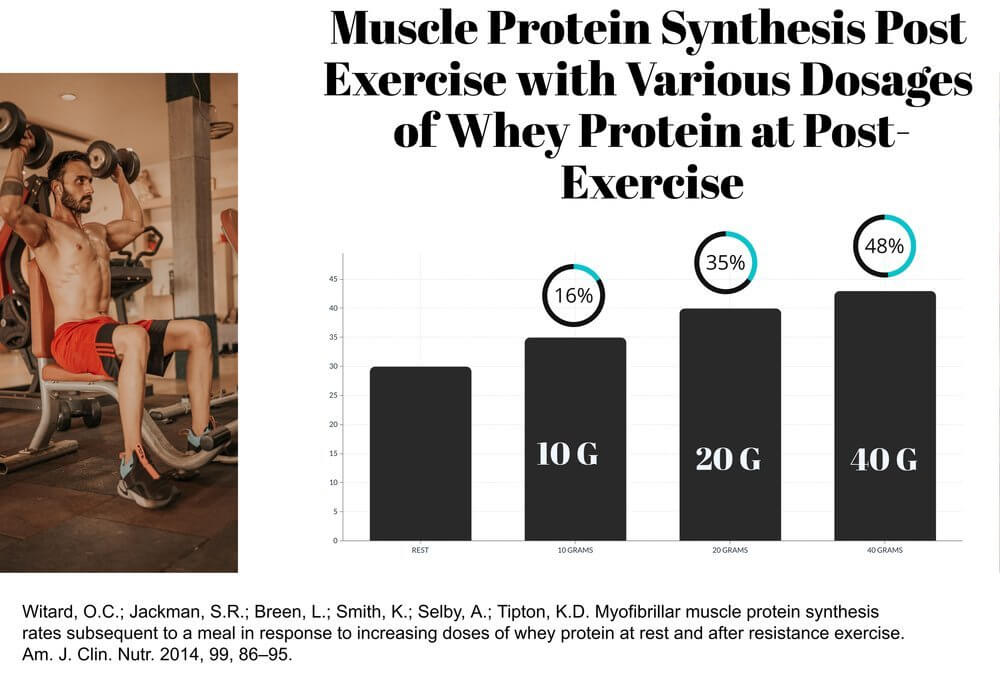Protein Sources and Muscle Growth
The role of protein in muscle building and gym performance – Understanding the different types of protein and their impact on muscle growth is crucial for optimizing gym performance. Various protein sources offer unique amino acid profiles and digestion rates, influencing their effectiveness in muscle protein synthesis.
Protein Types and Absorption Rates
Different proteins digest and are absorbed at varying speeds. This impacts their usefulness at different times of the day.
| Protein Source | Amino Acid Profile | Digestion Time (Approximate) | Notes |
|---|---|---|---|
| Whey Protein | High in leucine, branched-chain amino acids (BCAAs) | Fast (1-2 hours) | Ideal for post-workout recovery due to rapid absorption. |
| Casein Protein | Complete protein, slower digesting | Slow (4-7 hours) | Provides sustained amino acid release, beneficial for overnight muscle protein synthesis. |
| Soy Protein | Complete protein, moderate absorption rate | Moderate (3-4 hours) | Good plant-based alternative; contains isoflavones. |
| Egg Protein | Complete protein, high biological value | Moderate (3-4 hours) | Excellent source of essential amino acids. |
Essential Amino Acids and Muscle Protein Synthesis
Essential amino acids, which the body cannot produce on its own, are building blocks for muscle protein. Sufficient intake is necessary for muscle growth and repair.
The body requires all nine essential amino acids to build and repair muscle tissue. A deficiency in even one can limit the rate of muscle protein synthesis.
Leucine’s Role in Muscle Protein Synthesis
Leucine, a branched-chain amino acid (BCAA), plays a critical role in initiating muscle protein synthesis. It acts as a key regulator, stimulating the process more effectively than other BCAAs.
Studies have shown that consuming sufficient leucine is vital for maximizing muscle growth after exercise. Supplementation with leucine can be beneficial, particularly for individuals who struggle to meet their daily protein needs through diet alone.
Protein Intake and Timing for Optimal Muscle Growth
Optimal protein intake and timing are crucial for maximizing muscle growth and recovery. This involves considering factors such as body weight, training intensity, and individual goals.
Recommended Daily Protein Intake
The recommended daily protein intake for muscle building varies depending on several factors. Generally, a range of 1.6 to 2.2 grams of protein per kilogram of body weight is often suggested for individuals engaging in resistance training. Those with higher training intensity or volume may require the higher end of this range.
Protein Consumption Timing
- Pre-workout: A small amount of protein (e.g., 20-30 grams) can help prevent muscle breakdown during exercise.
- Intra-workout: Protein supplementation during long or intense workouts can help maintain blood amino acid levels and reduce muscle fatigue. Examples include branched-chain amino acids (BCAAs) or whey protein hydrolysate.
- Post-workout: This is a crucial time for protein intake. Consuming protein within 30-60 minutes after training helps maximize muscle protein synthesis and recovery. Whey protein is commonly used due to its rapid absorption.
Protein Supplementation Strategies
Different approaches to protein supplementation exist, each with its advantages and disadvantages. Strategies include consuming a single large protein source, or distributing protein intake across multiple smaller meals throughout the day. The latter approach may be more beneficial for individuals with high protein requirements.
Protein’s Role in Muscle Repair and Recovery: The Role Of Protein In Muscle Building And Gym Performance
Muscle protein turnover, encompassing both breakdown (catabolism) and synthesis (anabolism), is essential for muscle growth and repair. Protein plays a pivotal role in this process, ensuring that muscle tissue is effectively rebuilt after exercise.
Muscle Protein Breakdown and Synthesis
Muscle protein breakdown and synthesis are continuous processes. Exercise causes some muscle damage, initiating a repair process where protein is essential to rebuild and strengthen muscle fibers. The balance between breakdown and synthesis determines net muscle protein balance (positive for growth, negative for loss).
Protein’s Contribution to Muscle Repair

After exercise-induced muscle damage, protein provides the amino acids necessary for repairing and rebuilding muscle fibers. This includes replacing damaged proteins and synthesizing new muscle proteins for growth and hypertrophy.
Protein Intake and Recovery Time
Sufficient protein intake accelerates muscle recovery by providing the building blocks for repair. Inadequate protein can prolong recovery, increase soreness, and potentially hinder further muscle growth.
Muscle Repair Stages, The role of protein in muscle building and gym performance

A visual representation of muscle repair would show distinct stages:
1. Damage: Exercise causes micro-tears in muscle fibers.
2. Inflammation: The body initiates an inflammatory response to clear debris and begin repair.
3. Repair: Protein synthesis is activated, using amino acids to rebuild muscle fibers. This stage is highly dependent on adequate protein intake.
4. Growth (Hypertrophy): With sufficient protein and proper rest, muscle fibers become larger and stronger.
Protein and Gym Performance Metrics
Adequate protein intake significantly impacts various gym performance metrics, including strength, power, and endurance. Conversely, insufficient protein intake negatively affects muscle growth and overall athletic performance.
Protein Intake and Performance Improvements
Sufficient protein intake supports strength gains by providing the building blocks for muscle growth. It enhances power output by contributing to muscle fiber hypertrophy and improves endurance by supporting muscle recovery and reducing fatigue.
Impact of Insufficient Protein Intake

Insufficient protein intake limits muscle growth, reduces strength gains, diminishes power output, and impairs endurance. This is because the body lacks the necessary building blocks for muscle repair and growth.
Protein Intake Levels and Gym Performance
| Protein Intake Level (g/kg body weight) | 1 Rep Max (Example) | Time to Exhaustion (Example) | Muscle Growth (Example) |
|---|---|---|---|
| Low (less than 1.0) | Limited gains | Reduced | Minimal |
| Moderate (1.6-2.2) | Significant gains | Improved | Noticeable |
| High (greater than 2.2) | May plateau; individual variation | Potentially further improved | May plateau; individual variation |
Note: These are examples and actual results will vary depending on many factors.
Factors Affecting Protein Utilization
Several factors beyond protein intake influence how effectively the body utilizes protein for muscle growth. These include other nutrients, training intensity, genetics, and overall health.
Role of Carbohydrates and Fats
Carbohydrates provide energy for workouts and replenish glycogen stores, supporting muscle protein synthesis. Fats are crucial for hormone production and overall metabolic health, indirectly supporting muscle growth. A balanced diet incorporating all macronutrients is essential.
Influence of Training Intensity and Volume
Higher training intensity and volume increase muscle protein breakdown and consequently, protein requirements. Individuals with more intense training programs generally need higher protein intakes to support muscle repair and growth.
Age, Genetics, and Overall Health
Age significantly affects protein synthesis rates. Older individuals often experience reduced protein synthesis, requiring higher protein intakes to maintain muscle mass. Genetics also play a role in individual responses to protein, influencing muscle growth potential. Underlying health conditions can also impact protein utilization and muscle growth.
Protein and Overall Health in Relation to Gym Performance
Adequate protein intake contributes to overall health, positively influencing gym performance. However, excessive protein intake can have negative consequences.
Protein and Overall Health Markers
Adequate protein intake supports immune function by providing amino acids necessary for antibody production. It also contributes to bone health by supporting bone mineral density. These factors indirectly enhance gym performance by reducing the risk of illness and injury.
Negative Consequences of Excessive Protein Intake
Excessive protein intake can strain the kidneys, potentially leading to dehydration and increased calcium excretion. It can also contribute to weight gain if not balanced with appropriate caloric intake.
Recommendations for Safe and Effective Protein Supplementation
- Consult a healthcare professional or registered dietitian before starting any protein supplementation, especially if you have pre-existing health conditions.
- Choose high-quality protein sources with minimal added sugars, artificial sweeteners, or other unnecessary ingredients.
- Ensure that protein supplementation is part of a balanced diet that includes carbohydrates and fats for optimal health and performance.
- Gradually increase protein intake to assess your body’s tolerance and avoid digestive discomfort.
- Monitor your hydration levels, as increased protein intake can increase urine output.


